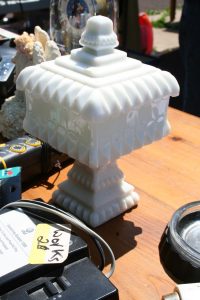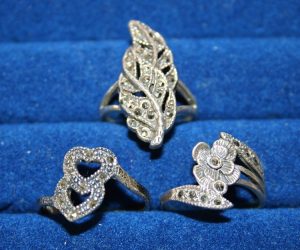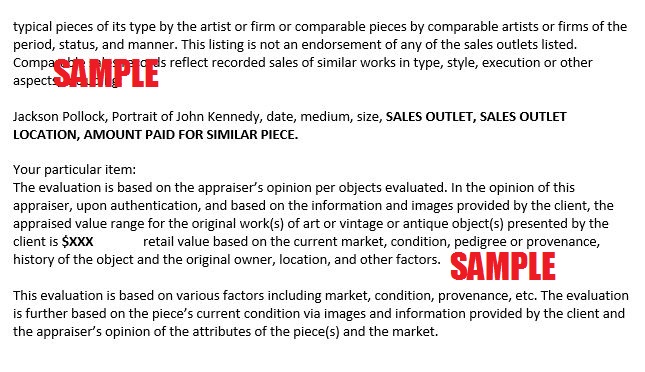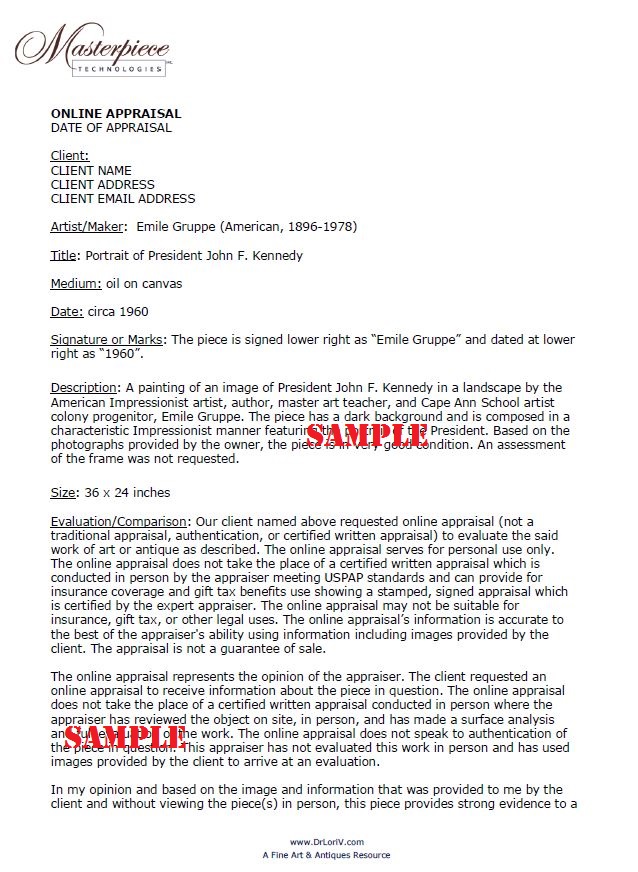Before you sell anything like that valuable punch bowl, you need an honest appraisal of each object. Make sure the objects are correctly identified and evaluated based on actual sales. Yes, you can use my appraisal services online or in person or via video chat which is the easiest and most popular way people learn about the value of their items. These three points about estate sale liquidating are based on the real stories that I’ve heard time and time again from people after they got taken at their own auction or their estate sale.
Everyone shares their favorite cat playing the piano video on the internet, but no one shares this important information online about auctions and estate sales. So, I’ve outlined a few points here based on stories told to me by people like you.
1. Don’t Leave them Home Alone

Grandma just passed away and you have decided to have an auction house or an estate sale company clean out her stuff and sell it all for you. Seems easy, right? Be careful, not all auctions and estate sale organizers are reputable and some just don’t know what they are doing. This is true in any business, not everybody is reputable. Typically, the unscrupulous or guilty auction houses or estate sale folks send me nasty emails after they read my blog posts like this one. Anyone can send their comments or questions. If the people you’ve contacted suggest one of these three things to you, find another liquidation company.
Often, in preparation for the auction or estate sale, the company will want to go through the house to inventory or catalog all of the pieces for sale like the Eastlake Furniture or Costume Jewelry. Of course, this is expected. They have to know what they are going to market and sell. If, after the inventory has been taken, the auction or estate sale representative suggests or even demands that no family members may attend the auction or estate sale, then you have a big problem. This is a big red flag for you. You should always have someone from the family present at the auction or at the estate sale. Don’t let anyone talk you into staying away from your auction or estate sale. They don’t want you to see what goes on.
I’ve heard countless stories of auctioneers and estate sale companies stealing items from the home during the clean out, mysteriously losing items during the auction or selling valuable items to the auction dummy or plant in the auction during the selling phase. Many bad things can happen when no one from the family is around to keep watch over grandma’s valuable stuff, which is now your valuable stuff. You need to keep tabs on these people.
Another unethical practice by some auction companies is to slightly damage pieces as they prepare an inventory or catalogue objects during a house clean out or move special objects out of the home of a deceased relative to keep that object for their own gain. This damage may be noted at the auction or estate sale so a piece sells at a lower price and is repaired later.
One of my clients saw this happen, in person, as auction house reps were taking objects out of her grandmother’s house for the auction. When she knew she could not be present later to watch the auctioneers and other clean out workers, she set up a secret video camera in a room where the cataloging was taking place. She caught all of the underhanded practices on videotape. You ask, why would they want to damage a valuable antique? So, they can sell it at a lower price to one of their regular auction customers or to a restorer who can fix it and then resell it at a high price later. The repair is usually minor enough and not noticeable to most antiques shoppers. It can easily be missed when the valuable is posted in online photos for sale on websites like eBay. Understand the important difference between an antique appraisal vs. a purchase offer.
2. Can’t be at Your Own Sale

When interviewing auction and estate sale companies to sell grandma’s antiques like her Meissen porcelain or Nippon pieces, ask them if you or family members can be present at the auction. Some will not want you to be there so they can pull tricks like the one described above. Others discourage you from attending because they don’t want you to see how little money they get for Grandma’s antiques from their friends and other people in the auction bay. Remember, these objects represent your inheritance. It equates to real money.
Another trick they may want to hide from you is to bring items they have from other auctions to your auction and selling them at your auction. You’d question why Grandma had a gun collection when you know she didn’t like guns. If your auction is helping someone else’s auction and helping the auctioneer to better market and sell someone else’s property, then you should get a cut or percentage of that auction’s sales. Remember, this is based on actual events of real people that I have met.
Some auction and estate sale companies will encourage and welcome families to come to their relative’s auction. They like the idea of giving family members the opportunity to bid against each other for that starving artist painting or valuable dishes that may have sentimental value to them. Typically, the item that they want you to bid on or fight over is the one that your brother doesn’t think you should have like the tall case clock. These family arguments really impact your bottom line and these fights will help the auction house make more money for themselves. This tactic increases their profits. Try to get along for everybody’s financial sake.
3. Offers One Price for Everything
An auctioneer or estate sale organizer might meet you at Grandma’s to see what is “saleable” and to determine if they feel they want to do the job of taking your grandma’s antiques and put them up at auction or market them in an estate sale. Well, this is reasonable. This is no different than when a home contractor doesn’t want to paint your house after seeing it because it is too much work. If the auctioneer or estate auction starts to suggest that nothing is valuable in the home and you know Grandma has valuable Duncan Phyfe furniture, pay attention to his words and his body language. They may even suggest that an auction would be a waste of everyone’s time. This could be a set-up. When the auction representative offers to buy all of Grandma’s stuff for one price after telling you nothing is worth auctioning off, you might want to find another auctioneer. This is a clue that you have valuable antiques and the auction rep wants to get a good deal now, skipping the part where he shares the profits with you and your family in an auction. Some auctioneers know that most people just want the whole thing to be done and many people will not do their homework or research, not find out how much everything is really worth, and just give the stuff to the first person who makes them an offer and call it a day. Not a good deal for you, in fact, that’s a really lousy deal. Read 3 antiques lies to ignorewhich can help you as well spot this trick.
All of this loss can be avoided with my honest evaluations of your grandma’s antiques and I give answers to your questions about selling antiques. Many of my clients have immediately realized that an honest appraisal is well worth the money once you see how little your first few auctioned off objects go for. Know the actual value. Are you in need of a reputable appraiser? View the appraisal options I offer. Compare me with the rest… you won’t be sorry you did.
Read More »

